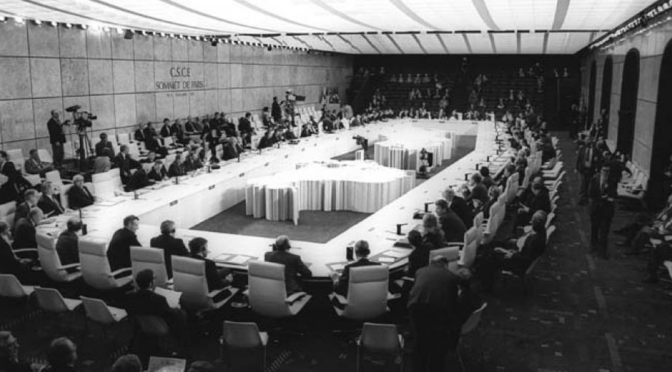
Human Rights, Peace, and Security in Europe in the Perspective of Political Exile as a Non-State Actor in International Politics
This event is organised by the Institute of Contemporary History of the Czech Academy of Sciences in cooperation with CEFRES.
Date: October 21–23, 2025
Location: Archive of Parliament of the Czech Republic (Komunardů 1634/44, Prague 7)
Language: English
Program
Continue reading Helsinki at 50. Human Rights, Peace, and Security →
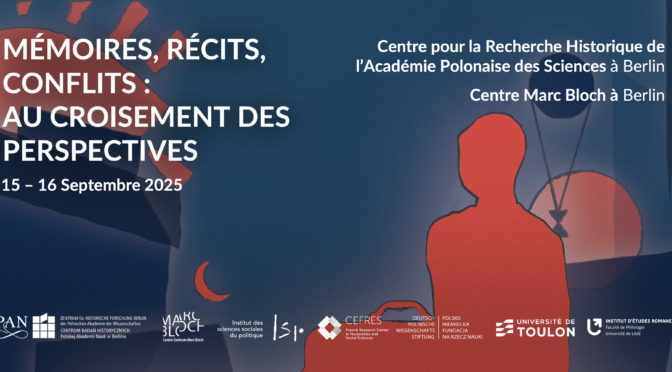
A conference organized by:
Centre d’études historiques de l’Académie polonaise des Sciences (CBH-PAN)
ISP (UMR 7220)
LincS (UMR 7069)
Université de Toulon
Université de Łódź
and the French Research Center in Humanities and Social Sciences (CEFRES, Prague)
Date: September 15–16, 2025
Location: Berlin, Polish Academy of Sciences, Marc Bloch Center
Languages: English & French
‘Memory’ as a subject of study and a political, social and media issue has dominated public debate in Europe since the late 1980s. ‘Duty to remember,’ ‘realms of memory,’ ‘wars of memory,’ ‘competition among victims,’ ‘memory invasion,’ ‘paths of memory,’ ‘politics of memory,’ ‘defence of memory,’ ‘murderers of memory’: these expressions reflect a new relationship with the world, a new regime of historicity that François Hartog calls presentism. This new configuration of the relationship with the past is reflected in various identity claims, particularly from previously dominated groups, but also in new institutional practices. Memory becomes a tool for mobilisation and intervention in the media, in public life, in politics in the broad sense of the term, but also in literature and the arts. It fuels epistemological reflection within the humanities and social sciences community. Continue reading Memory, Narratives, and Conflicts: At the Confluence of Perspectives →
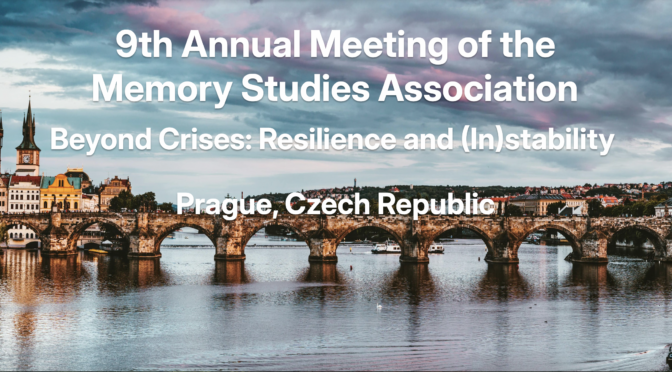
9th Annual Meeting of the Memory Studies Association
The conference is organized by Memory Studies Association, Charles University and Czech Academy of Sciences with the support of CEFRES.
Date: July 14–18, 2025
Location: Charles University and the Czech Academy of Sciences, Prague
Language: English Continue reading Beyond Crisis: Resilience and (In)stability →
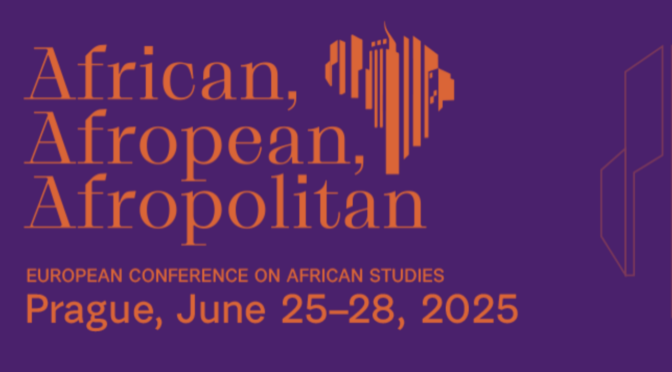
When: June 25-28, 2025
Where: Prague
Organizers: Czech Association for African Studies & European African Studies Association
AEGIS organises the European Conference on African Studies (ECAS) every second year, in a different European city, convened by one or more AEGIS members. It has become the largest global African Studies gathering, growing exponentially every year and attracting scholars from across Europe, Africa and the world.
CEFRES is a proud partner of this international conference which is is for the first time in its history located in one of the post-communist Visegrad countries – in the Czech Republic, known as the heart of Europe.
The 20th anniversary of ECAS will give us a great opportunity to look retrospectively at African studies in Europe, and more generally over the past two decades, while also providing new insights into the future development in the field. We will do our best to design a challenging programme of keynote speakers, plenary and roundtable sessions, film screenings, book displays focusing on African studies, and cultural and artistic events.
See the full program of the conference here.

When: June 25-28, 2025
Where: Prague
Organizers: Czech Association for African Studies & European African Studies Association
AEGIS organises the European Conference on African Studies (ECAS) every second year, in a different European city, convened by one or more AEGIS members. It has become the largest global African Studies gathering, growing exponentially every year and attracting scholars from across Europe, Africa and the world.
CEFRES is a proud partner of this international conference which is is for the first time in its history located in one of the post-communist Visegrad countries – in the Czech Republic, known as the heart of Europe.
The 20th anniversary of ECAS will give us a great opportunity to look retrospectively at African studies in Europe, and more generally over the past two decades, while also providing new insights into the future development in the field. We will do our best to design a challenging programme of keynote speakers, plenary and roundtable sessions, film screenings, book displays focusing on African studies, and cultural and artistic events.
See the full program of the conference here.
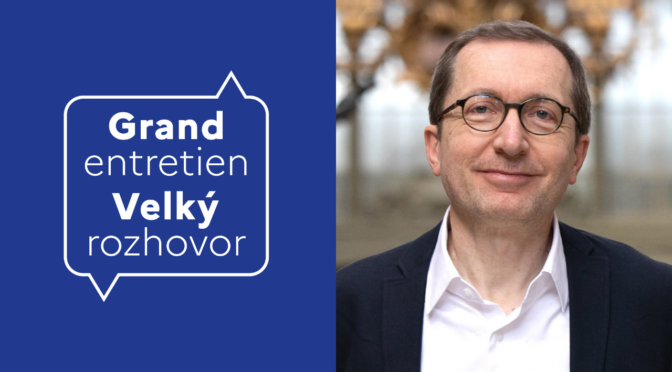
To Live in a Library of Five Dimensions
As part of the ‘Grands entretiens’ series, this event is organised by CEFRES and its Platform partner, Charles University, in collaboration with the French Institute in Prague.
Date: June 11, 2025, 18 h
Location: French Institute in Prague, Štěpánská 35, Praha 1
Language: in French with simultaneous translation into Czech
Moderation: Záviš Šuman, Faculty of Arts, Charles University
Where does the hostility towards literature come from, and what are the roots of its growing devaluation? How can we enrich our readings by taking a decentralised look at the texts? To what extent can a perspective from afar shed new light on our understanding of the Greek tragedies? And with what far-reaching arguments has Pope Francis put an end to a long history of scathing indictments of literary texts?
Continue reading Grand Entretien with William Marx →





